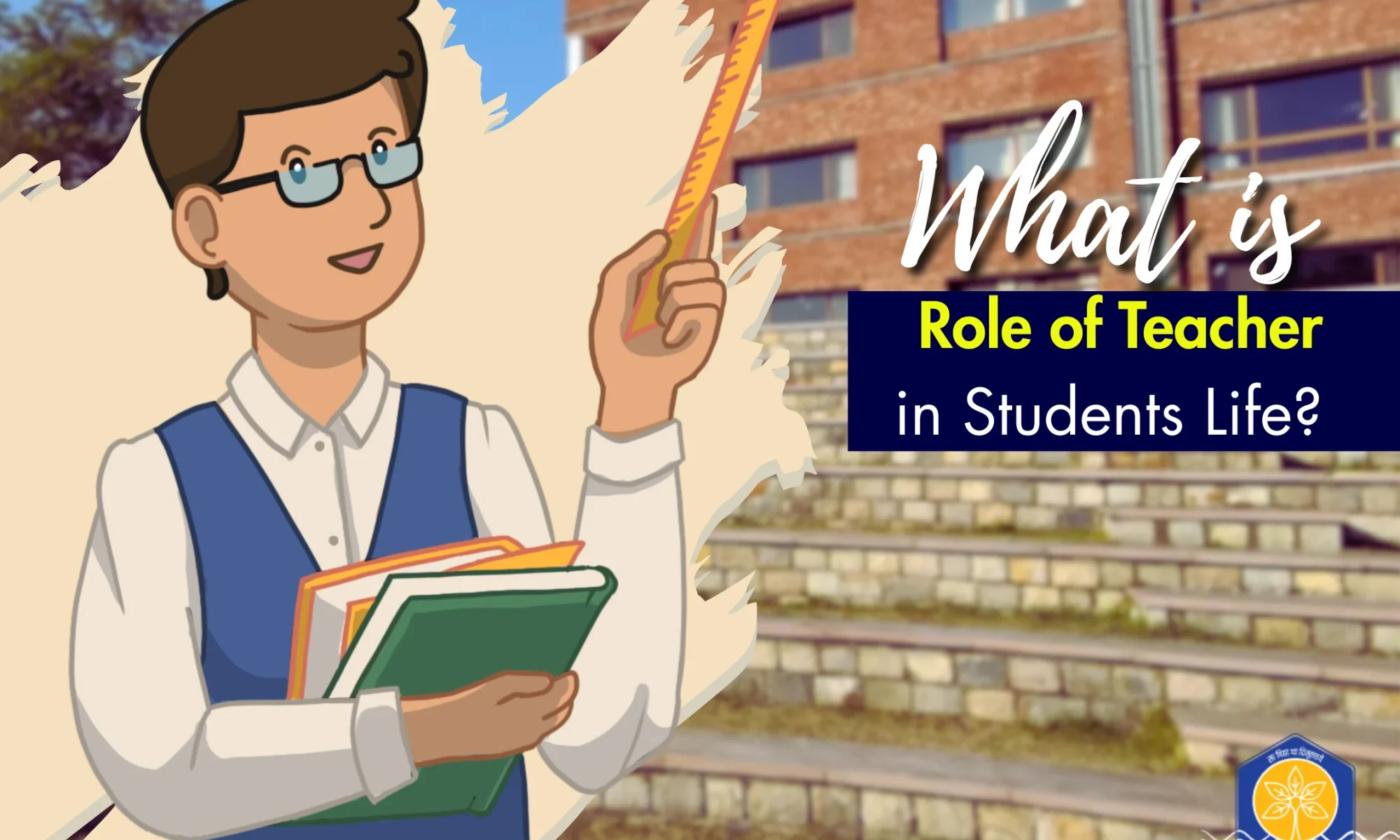
In every student’s academic journey, the role of teacher in students life is not just limited to textbook lessons. Teachers are the guiding lights who shape young minds, fuel aspirations, and nurture emotional, social, and intellectual growth.
They influence a child’s learning pace, curiosity, and personality both inside and beyond the classroom. Especially in structured environments like Boys Boarding Schools in India, the presence of a dedicated teacher plays an even more significant role in holistic development.
The role of teacher in Students Life:

1 . Teachers as Academic Mentors
One of the primary roles of teachers is to facilitate learning in a structured and meaningful way. From explaining complex concepts to developing study routines, teachers are the cornerstone of educational success. They do not just deliver curriculum; they ensure that every student understands, applies, and retains it.
- Simplifying difficult subjects like math or science
- Encouraging curiosity through project-based learning
- Adapting teaching methods to suit different learning styles
This personalized attention helps each student realize their potential.
2. Building Character and Values
The role of teacher in students life also extends into value education. A teacher is often a child’s first non-parental adult influence. They lead by example, teaching honesty, respect, discipline, and empathy. Teachers often help students understand the importance of moral choices and social responsibilities—skills that last a lifetime.
Through everyday interactions, teachers model behavior that fosters:
- Emotional intelligence
- Integrity and responsibility
- Teamwork and conflict resolution
These traits build the foundation for becoming thoughtful, ethical individuals.
3. Boosting Confidence and Motivation
Teachers serve as constant motivators in a student’s life. A word of encouragement from a teacher can boost a student’s self-esteem dramatically. Whether it’s praising a correct answer, appreciating a creative idea, or simply acknowledging effort, such reinforcement motivates students to try harder and perform better.
Motivated students tend to:
- Take initiative in learning
- Participate in class discussions
- Perform well academically and socially
This illustrates how the role of teacher in students life extends into the emotional and psychological realm.
4. Identifying Talents and Weaknesses
Every child is unique, with individual strengths and areas of improvement. A good teacher observes, assesses, and identifies these traits early on. They play a key role in nurturing talents—be it in academics, sports, arts, or leadership.
Teachers also help students work on their weaknesses by offering additional resources, extra help sessions, or counseling referrals. By doing so, they pave the way for comprehensive student development.
5. Acting as Counselors and Advisors
In the dynamic, often stressful phase of school life, students need someone they can trust. Teachers often serve as informal counselors—listening, understanding, and offering guidance. Whether a student is struggling with peer pressure, exam stress, or personal issues, a teacher’s timely support can make a difference.
Their advice on:
- Time management
- Exam preparation
- Future academic paths
6. Role in Social Development
Students learn a lot about social behavior from teachers. Group work, peer interaction, class participation—all these are guided by the teacher’s supervision and attitude. This helps students develop essential social skills such as cooperation, leadership, patience, and respect for others’ opinions.
In institutions like Boys Boarding Schools in India, where students live together and learn around the clock, teachers often double up as guardians, mediators, and role models in shaping respectful peer relationships.
7. Encouraging Creativity and Critical Thinking
The modern teacher is not just a lecturer—they are facilitators of independent thought. Teachers today focus on encouraging creativity and critical thinking. This enables students to ask questions, solve problems, and come up with new ideas.
This is important because:
- Creativity drives innovation
- Critical thinking builds decision-making ability
- Both skills are essential for future readiness
Through classroom discussions, debates, research assignments, and brainstorming sessions, teachers bring out the analytical side of students.
8. Creating a Safe Learning Environment
A positive, inclusive classroom atmosphere is essential for effective learning. Teachers play a pivotal role in making the classroom a safe space where students feel valued, heard, and respected. A welcoming environment fosters openness and leads to better engagement in learning.
Key elements of such an environment include:
- Clear communication
- Respectful behavior
- Encouragement of student voice
The role of teacher in students life thus becomes central to the emotional and social security of learners.
9. Supporting Lifelong Learning
Teachers do not just prepare students for exams; they prepare them for life. They instill a love for learning that goes beyond the classroom. By making learning enjoyable and relatable, teachers help students become lifelong learners.
They encourage:
- Curiosity beyond textbooks
- Reading habits and general awareness
- Digital literacy and global understanding
Students taught this way become adaptable thinkers—ready to face real-world challenges.
10. Collaboration with Parents and Institutions
The role of teacher in students life also includes effective communication with parents and collaboration with educational institutions. When teachers and parents work together, they form a support system that ensures student success.
They jointly monitor:
- Academic progress
- Behavioral changes
- Emotional well-being
Frequently Asked Questions (FAQs)
Ques 1. How does a teacher influence a student’s future?
Ans. Teachers help students explore their strengths, develop critical thinking, and prepare for life decisions through consistent mentorship and support.
Ques 2. How do teachers help in character development?
Ans. They instill values like honesty, empathy, respect, and responsibility through both lessons and personal example.
Ques 3. What is the teacher’s role in inclusive education?
Ans. They adapt teaching for diverse learners and create an environment where every student feels accepted.
Ques 4. How do teachers develop leadership in students?
Ans. They assign responsibilities, encourage initiative, and create opportunities to lead projects or teams.
Ques 5. How can a teacher shape a student’s personality?
Ans. By nurturing confidence, instilling discipline, and exposing students to varied perspectives and challenges.




